Last updated on March 25th, 2024
The People Who Become Guideposts on our Travels
You know those times on a travel adventure where we meet someone or have a brief encounter that stays with us long after the journey ends? The kind of meaningful exchange that changes our life, puts us on a new path, or transforms into words we live by. Those people and our interactions with them become guideposts in our lives – even if we don’t realize it at the time.
We asked you to share your guidepost stories with us, and were moved and inspired by what poured in. Read on as we explore tales from your fellow JourneyWomen about the people who become part of our journeys with a word, a piece of advice, some directions, a recommendation – and leave a lasting impression on our lives.
When a first impression isn’t the lasting one
The year was 1983. Dee K. and her husband were on their first trip to Paris, France, and neither of them spoke French. They’d been told to expect rude behaviour from the locals in Paris, who didn’t like Americans who couldn’t be bothered to learn their language. Dee had a Berlitz guidebook to French for travellers, and she attempted to speak French whenever possible – though she notes her Texas accent made it a challenge.
Their waitress at their first dinner in the city was neither chatty nor keen on helping the couple decipher the French menu. But the next day, they sat down across from her on the Metro on a short hop across town.
“She looked up, recognized us, then said: ‘I think I served you last night.’ We agreed she had. Then she asked where we were headed. When we told her our location, she warned us of pickpockets, advised us where/how to secure items, and then, decided she would get off at our stop and escort us to the Galerie Lafayette,” says Dee. “She told us how nice the American soldiers were at the end of WWII and how they gave candy to the children and helped France rebuild after the war. I’ll never forget her.”
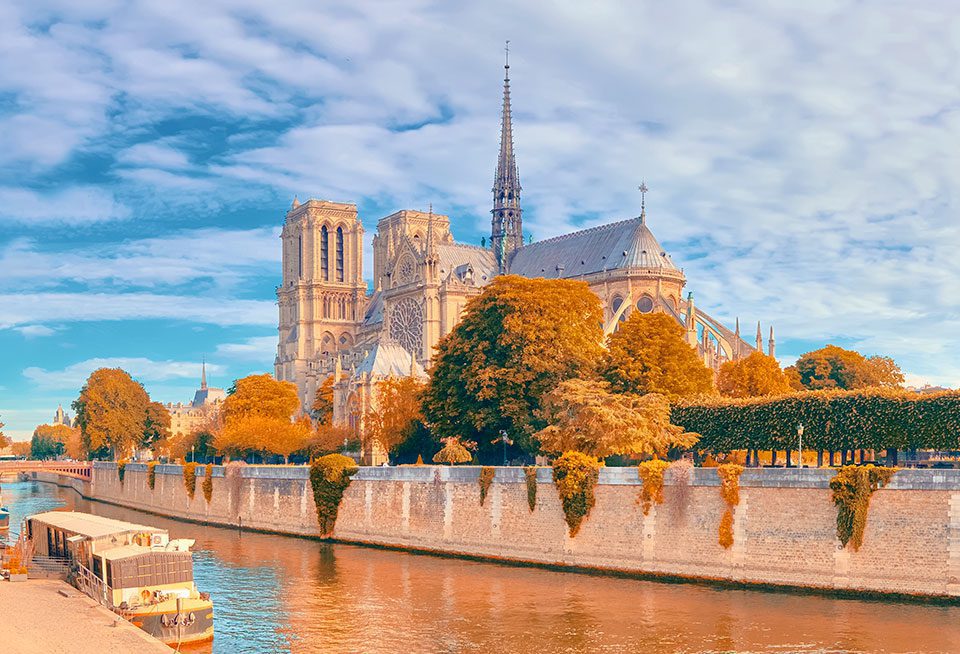
During their stay in Paris, Dee and her husband climbed to the top of Notre Dame Cathedral to take in the sweeping views it offers of the city. “My hubs said I looked like a gargoyle by the time we got to the top! I thought travel was crowded back in the 1980s – can you believe? We were supposed to be in Paris again this April, so it’s still on my bucket list to return,” she says.
While Dee says the waitress wasn’t the only French person to show the pair kindness, she was the most memorable because she went out of her way to assist them – almost as if she was repaying a debt her country owed.
From the experience, says Dee: “l learned not to prejudge people or countries by another person’s experience. To travel with an open mind and heart. To expect to see differences, but also similarities and learn from one another.”
Learning to recognize English-speaking privilege – and being inspired to check it
Sydney B. travelling the summer after graduating from university primarily to brush up on her French-speaking skills, but met up with her then-boyfriend in Greece for a shared holiday. One day, as the couple was out for a stroll on the island of Rhodes, they encountered a frazzled French woman who asked: “Parlez-vous français?”
Sydney had taken four years of high-school French, with an additional few terms at university. But by the time she graduated, she was rusty. Not wanting all her hard work to go to waste, she chose to spend the summer in intensive self-study, travelling in primarily Francophone countries and volunteering, staying with host families and honing her French language skills.
“My boyfriend deferred to me and I gave her directions back to town. He commented on why French was her first choice and not English (more widely spoken in Greece),” she recalls. “I was at a loss for words. She was clearly French, lost and more comfortable asking for help in her mother tongue. I was aware of my privilege as a native English speaker to an extent as I’d been to non-English speaking countries before and could usually find someone who spoke my mother tongue if needed. But this was an eye opener for me.”
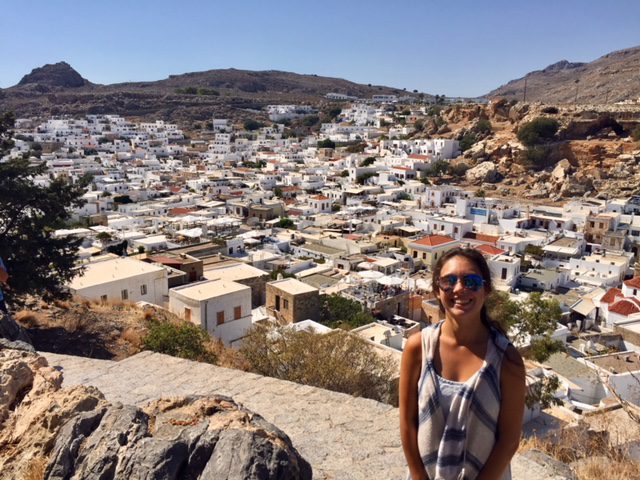
Sydney B on the Island of Rhodes
Sydney’s boyfriend – who considered himself a liberal, open-minded global citizen – couldn’t understand why a traveller might ask questions in a foreign language other than English. That was the beginning of the end for a relationship that was already experiencing stress fractures.
The interaction forced Sydney to face some things she hadn’t examined too closely.
“I’ve heard numerous times that traveling, especially in a ‘lesser developed’ country like Greece is a great way to test a relationship,” Sydney says. “This was definitely the case for us. I realized that it wasn’t enough to date someone who loved travel if they were more interested in the superficial, country counting and learning trivia instead of using what they learned to inform their own world view.”
One simple encounter with a lost French woman – and the relief that flooded her eyes when responded to in French – opened Sydney’s eyes to how fortunate she was to rarely encounter communication barriers while travelling. It woke her up to her English-speaking privilege, and upon her return home, she did something about it.
She enrolled in courses at her local Alliance Français and continued testing her skills by reading French literature, listening to French podcasts, watching French Netflix and keeping a French journal. She also found herself a partner whose travel style and worldview is more aligned with hers: “My current partner was raised bilingual in Canada, speaks four languages, has lived and travelled all over the world and has truly used his experiences as learning opportunities about himself and the world – it’s the main way we connect. And he doesn’t throw it around in a pretentious ‘look at how well-travelled I am’ way,” she says.
Now fluent in French, Sydney is turning her studies to other languages to help her communicate with even more cultures. Spanish and Portuguese to fuel travels in those countries and Latin America, Greek or Turkish as a nod to her deep love of the Mediterranean, and Tagalog to honour an offshoot of her family’s roots in the Philippines.
Not all travel treasures are found behind gilded gates
In 1986, Lois R. was travelling solo in Chiang Mai, Thailand and had planned a ‘wat walk’ day. Armed with a map of the city that had the wats – Buddhist temples and monasteries – marked, she was ambling along from one to another. She encountered an older wat that was unremarkable in design, but it offered her a remarkable experience.
“I liked this one because it was obviously older and didn’t have all the gilt and glory,” she says. “I and the only other tourist there were approached by a monk who asked if we would like to see the ancient scrolls. Of course, we did. He took us into a room that is not open to the public and we got to see many old paintings and scrolls written in an ancient script. It was a fascinating experience and a highlight of the day.”
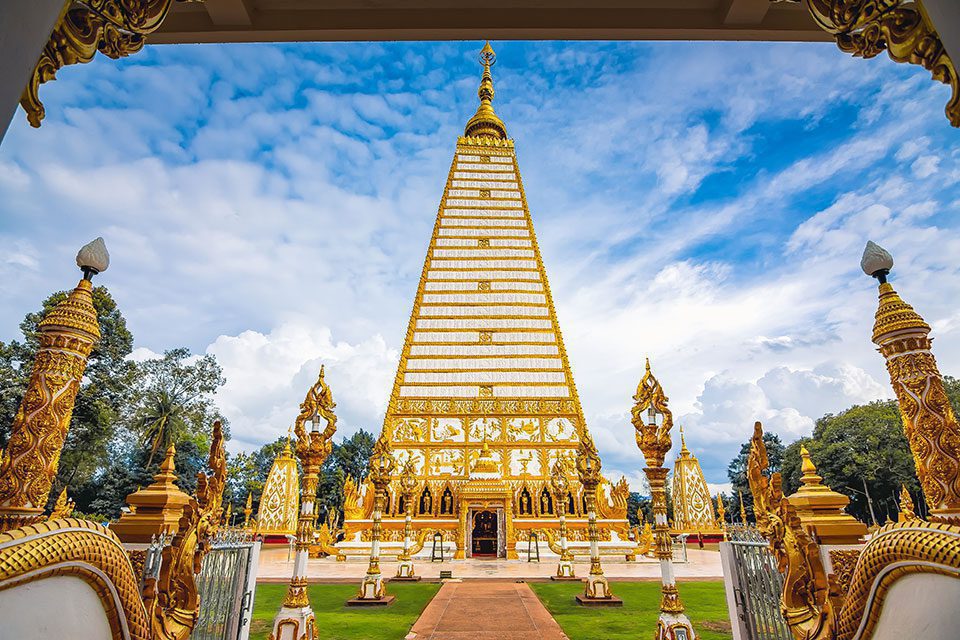
A traditional wat in Thailand
The monk regaled the two solo travellers with the stories behind the scrolls and the history of Siam. And he became a guidepost directing her to a different way of travelling.
“I developed the yen to search out smaller, more local and possibly overlooked sites because there may be greater treasure there and a more personal experience,” she says. “It’s led me to finding some fantastic markets that aren’t swarmed by tourists.”
A humbling lesson in gratitude
In 2004, Marilyn T. was travelling in Tanzania with a small group. They had hardboiled a dozen eggs as part of their dinner but hadn’t consumed them. On dish duty that night, Marilyn asked the cook what to do with the leftover eggs. He instructed her to give them to a woman who had approached their group that morning asking if they had any laundry to be done.
“I took the eggs and mimed to her that they were hers, a small gift. She took my hand, knelt down and with tears in her eyes she said, ‘My children will eat,” Marilyn says. “I have never felt so humbled. It still brings tears to my eyes 16 years later. I was overwhelmed that she was so grateful for a dozen eggs. I buy eggs without a thought. I’ve never had to worry if my children would eat at night. I was struck by how different our lives are and how much is simply luck. I was born a white woman in North America; she was born a black woman in Africa. How it is not because I’m smart or make good choices or by my hard work that I am where I am today, and she is where she is but simply by being born where we were, when were.”

A Marilyn T. never looked at eggs the same way after her experience in Tanzania
When Marilyn returned home and to her managerial role in a large organization, one of her employees complained to her about the size of her office and the fact that the window barely opened. She had a difficult time reacclimating and seeing First World problems as anything but trivial.
“I became so very aware of my own entitlement and how without meaning to, I had been judgemental of others,” she says. “Whenever I feel that I deserve better than I have, I remember this woman who worked all day washing clothing (when she could find someone who wanted their clothing washed) for mere pennies and a dozen eggs.”
Planting the seeds of cycle-touring inspiration
In 1990, 21-year-old Elizabeth C. was spending her summer travelling around the US by bus. While staying at a hostel in Eugene, Oregon, she met a man a week from finishing a cross-country bicycle trip. What struck her about him was his strange tan lines from the shorts and helmet straps.
“I’d already had the idea that I someday wanted to do a long, self-supported journey. At the time, I was thinking of a long-distance walk in Europe. But meeting this guy put bicycle touring on my radar in a real way,” she says.
She remembers that he was riding the ‘wrong’ way – east to west, into prevailing winds the whole way. “He had figured that going the other way you have to climb mountains almost right away whereas coming from New York, you’d have a long time to get ready for big mountains. And he was from New York, so he started from there,” she says. “I think I took a sort of just-do-it message from that. Don’t worry about how other people do it.”
It took Elizabeth 20 years to begin touring herself. Life got in the way, and part of her wanted to wait until she had a partner to ride with. On her first bike tour, she and her now ex-husband rode from their home in Sydney, Australia to his sister’s home in Canberra. It was Christmastime and blazing hot. The pair took their time, following back roads and staying in motels and pubs.
It was a thrill for her to finally make her long-held dream a reality – and to realize that she loved it as much as she thought she would. The highlight? An early morning ride along Lake George with a massive tailwind that sent them flying into the final day of riding.
She’s now taken several solo cycling trips, with the seeds that man planted 20 years ago in full bloom. “I always remembered his tan lines as a physical mark of the journey he’d made, and the stories he told,” she says. “I remember him radiating a kind of hard-earned relaxed happiness as he talked of the trip he had made from New York City.”
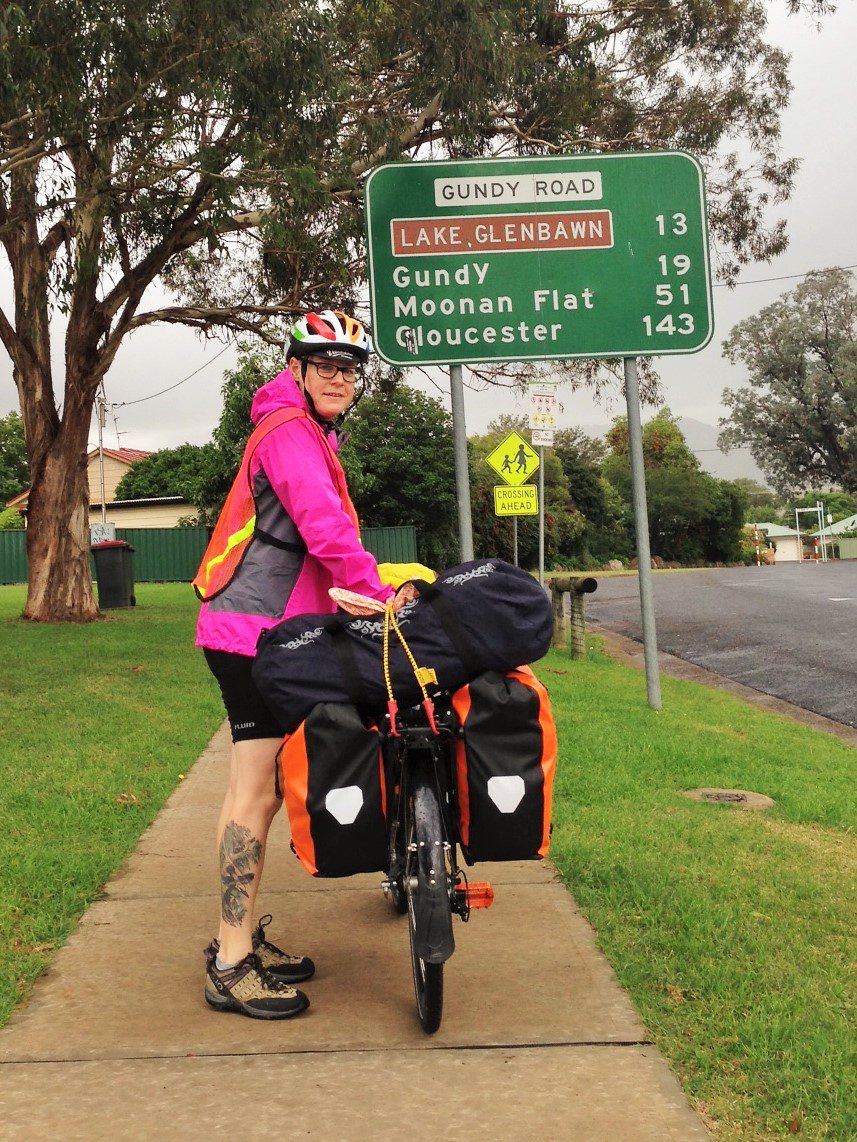
The “Golden Girls” of travel
When Shira R. was in her 20’s, she travelled solo from Albuquerque to Taos, New Mexico. There, she met three older ladies who – divorced or widowed – all lived and travelled together.
“They were laughing hysterically, which is why I started to speak with them. They were filled with joy and fun, and so young in spirit,” Shira says.
She is now 63, and while she’s had amazing experiences travelling alone for the last 10 years, she wants what those women had. The laughter. Fun, female friends to travel with.

Long before The Golden Girls inspired women everywhere to want friendships with longevity, three travelling older women inspired a twentysomething Shira to have that one day / The Atlantic
“They were a role model way before Golden Girls emerged,” she says. “The impact was realizing that they thought ‘out of the box,’ were into adventure and did not travel like ‘old women.’ They didn’t act like my grandparents. Funny how a simple memory can still be in the cracks of grey matter decades later.”
Other Great Articles You Might be Interested In
How Solo Women Can See the ‘Real’ Cuba, From a Woman’s Perspective
How solo women can see the ‘real’ Cuba and support women-owned homestays, restaurants and markets, at a time when tourism is desperately needed.
Reimagining Solo Travel: Insight Vacations Creates New Women-Only Tours
Insight Vacations has launched 11 new women-only tours for solo women, with small groups, unique experiences and single rooms.
Meet Joy Fox, 89, the First Recipient of the JourneyWoman Evelyn Hannon Solo Travel Award
Featured image: Joy Fox is the winner of the first annual Evelyn Hannon award | Photo by Adrienne Guinn, Vital Image PhotographyWith decades of solo travel experience, Fox says if she can do it, so can you by Carolyn Ray It's an honour to announce Joy Fox as the first...
Solo Travel for Seniors: How to Overcome Fear and Get Started in Solo Travel
If you’re a senior woman hesitant about solo travel, here are expert tips to get started and face your fears.

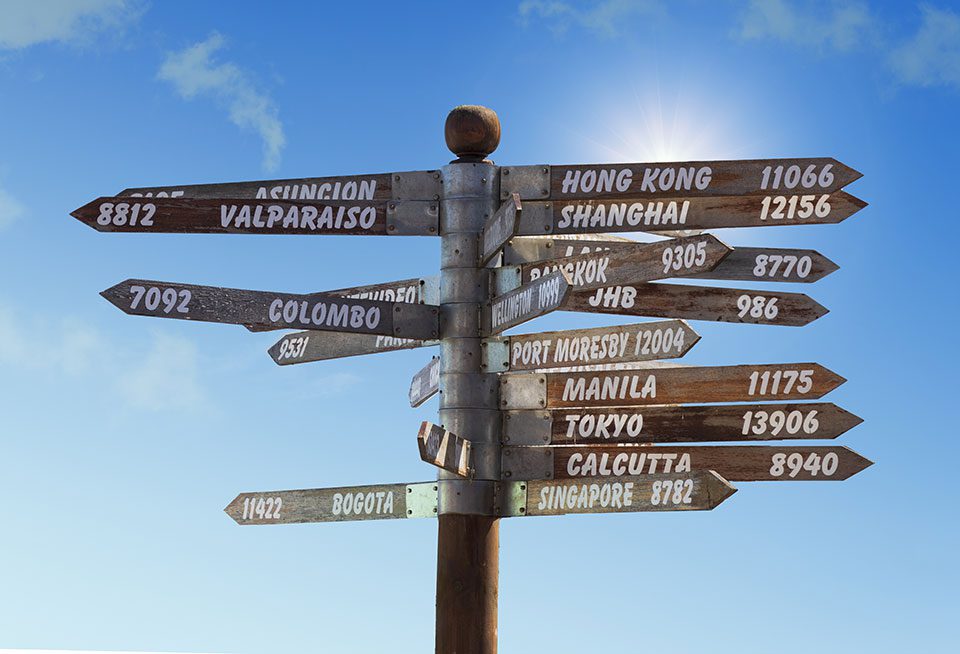

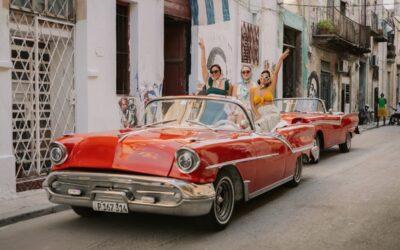
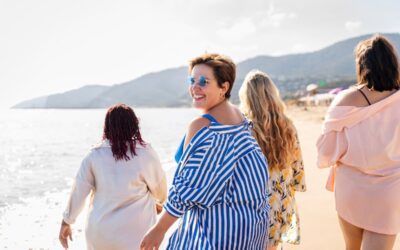
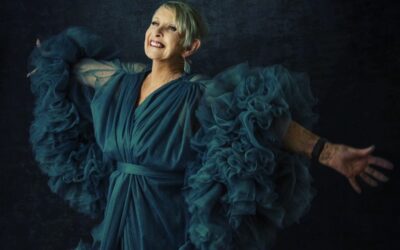
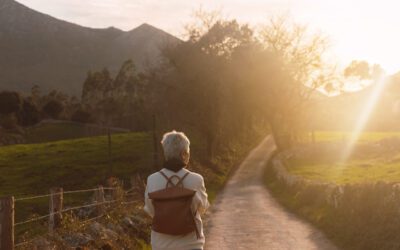

0 Comments
We always strive to use real photos from our own adventures, provided by the guest writer or from our personal travels. However, in some cases, due to photo quality, we must use stock photography. If you have any questions about the photography please let us know.
Disclaimer: We are so happy that you are checking out this page right now! We only recommend things that are suggested by our community, or through our own experience, that we believe will be helpful and practical for you. Some of our pages contain links, which means we’re part of an affiliate program for the product being mentioned. Should you decide to purchase a product using a link from on our site, JourneyWoman may earn a small commission from the retailer, which helps us maintain our beautiful website. JourneyWoman is an Amazon Associate and earns from qualifying purchases. Thank you!
We want to hear what you think about this article, and we welcome any updates or changes to improve it. You can comment below, or send an email to us at [email protected].